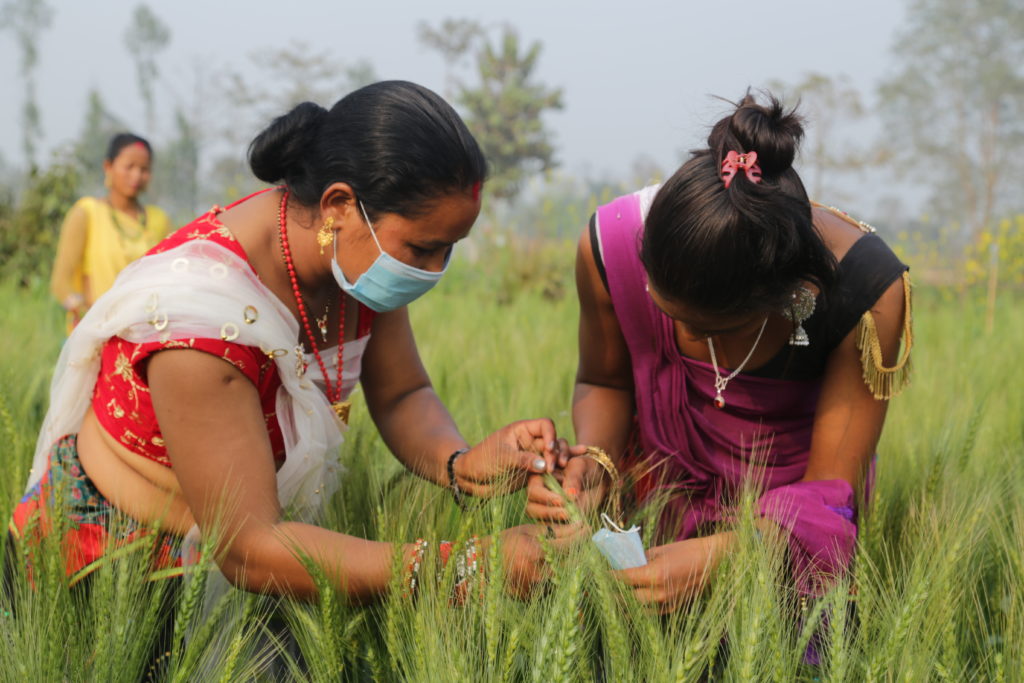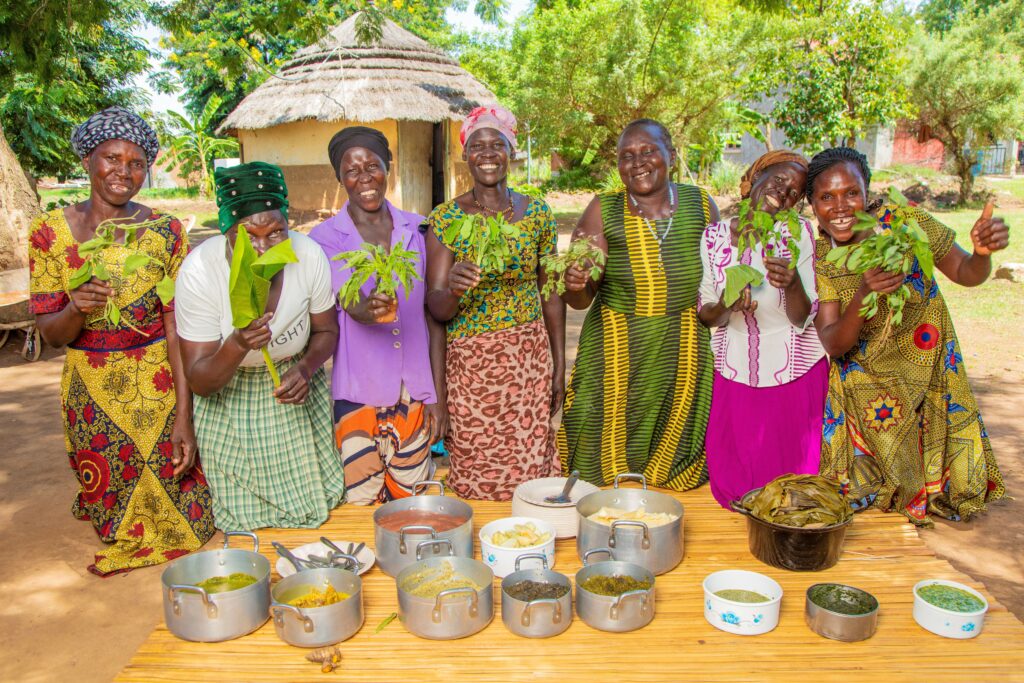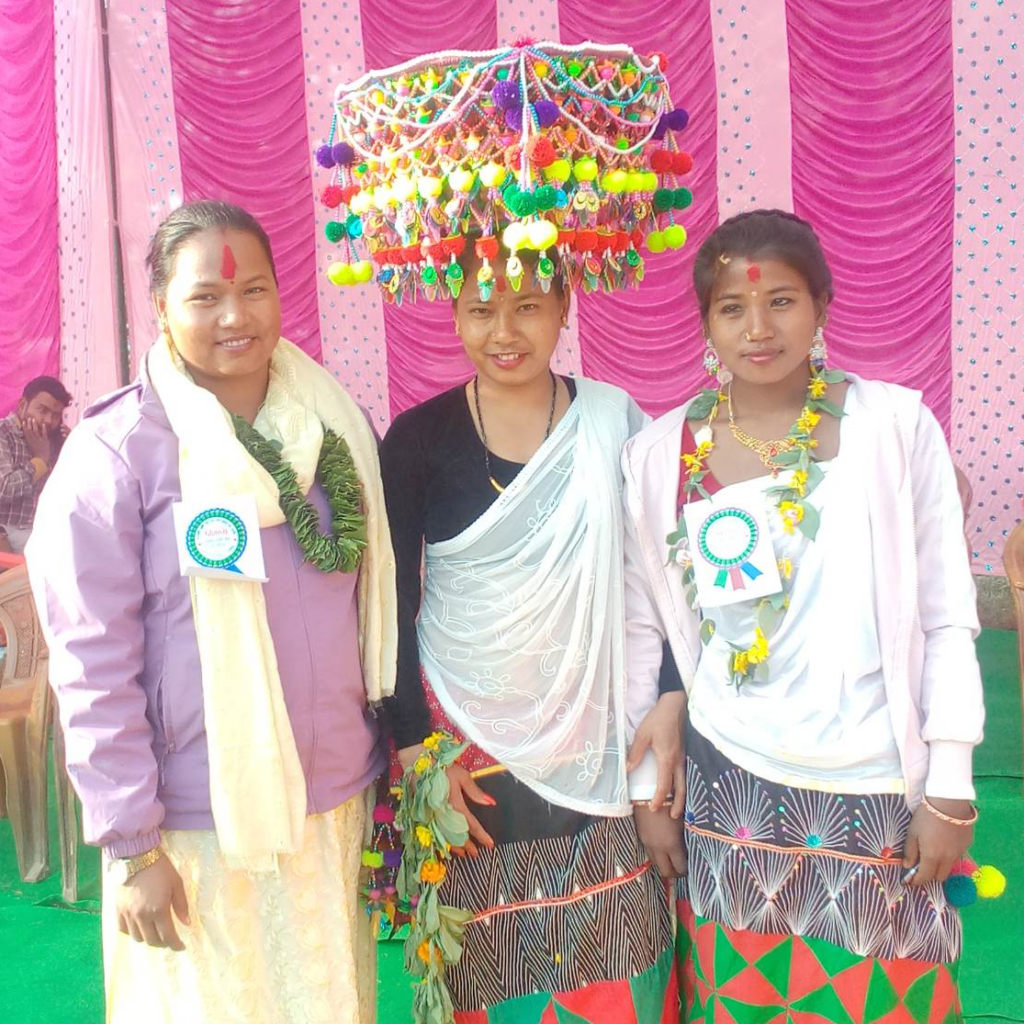By Manata Jeko and Pardon Sithole
Outcomes from the just-ended National end-of-season evaluation in Zimbabwe have demonstrated that the Sowing Diversity Equals Harvesting Security (SDHS) program in Zimbabwe has transformed farmers’ seed systems. A group of 30 participants from the six operational districts convened at Chibhanguza Hotel over three days to evaluate the performance of the SDHS programme over the period. The team comprised farmers, agriculture Extension Officers, District Agriculture Extension Officers, Nutritionists, Oxfam and CTDO programme staff. The main objective of the workshop was to evaluate programming and implementation elements under human capacity development, guidance and (technical) backstopping provided by partner organisations and breeders, field guides and season-long work plans, Gender Journey Module, prospects and map a way forward. The meeting objectives highlighted the transformation was significant, especially in key aspects such as human capacity building, management of plant genetic resources, technical guidance, backstopping of farmers in Farmer Field Schools (FFS, and creating an enabling policy environment. The impact of the project transformed the entire food production system and contributed to sustainable food and nutrition security of the participating FFS members and their neighbours. Following are some of the impacts of the program.
Human capacity building
The SDHS program had a strong capacity-building component that trained a dedicated team of 40 master trainers and 222 facilitators. The team led the cascading of the FFS concept in the five districts. The Farmer Field School received substantial attention which prompted the government to adopt the FFS concept after engagement with SDHS Zimbabwe. The program has a strong partnership with the National Breeding program through the Crop Breeding Institute (CBI) and international breeding institutions like ICRISAT and CIMMYT, which helps to enhance its ability to function and continue to stay relevant within a rapidly changing environment. Building capacity and skills for farmers, government and partners have been found to be crucial as a mid to long-term strategy in addressing resilience through agrobiodiversity. Awareness-raising, knowledge, and skills-building about the expected impacts of a changing climate and the need to adapt are normally starting points of capacity-building efforts.
Increase in crop diversity from new introductions
One of the major achievements is the introduction of new seed varieties from the Crop Breeding Institute, ICRISAT, CIMMYT and other research institutes. Participatory Variety Selection (PVS) and Participatory Variety Development (PVD) provided the farmers access to some plant genetic materials that were not available before in their locality. The varieties that would perform better were identified, multiplied, and shared among group members and in the community. For new crops that were introduced, farmers would produce more to sell to other farmers promoting adoption into the local biodiversity. Climate-resilient communities that adopted these varieties are now using climate-resilient crop varieties which tend to perform better in terms of tonnage and resilience under harsh conditions.
Restoration and enhancement of farmer varieties
Participatory Variety Enhancement (PVE) produced significant outcomes as farmers managed to clean some of the seed varieties which had deteriorated in performance due to cross-pollination. Local varieties which had been long known for their adaptability and productivity using the indigenous knowledge systems were cleaned and multiplied for reintroduction back into the local plant genetic pool. Communities were proud to have these local varieties back and were willing to buy the seeds during seed fairs as these crops have a strong link to local traditions.
Development of local markets for seed– entrepreneur/seed business development
The Transformation was seen in the lives of Farmers who participated in the Seed Production and Marketing (SPM) districts. The opportunity for farmers to interact with the market players, negotiate, and develop contractual agreements was reported as one of the most significant changes among farmers. Initially, farmers would work with champion seeds using the expertise they obtained in seed production and marketing. They are now able to approach other seed houses for the contractual production of clean seed. For instance, in the Tsholotsho district, working with the champion seed company, farmers paid USD 25000 for 25 tons of pearl millet in one season. Besides the external market, they have also developed a strong appetite for the small grains from the local market which in some instances they have failed to satisfy. On another note, opportunities have also arisen for farmers to work in another aspect of the seed value chain to improve their incomes some are now working as aggregators, transporters, and seed processors. Farmers also took advantage of the programme to establish strong links with the researchers, breeders and seed inspectors, a move that has made an impact on improving the quality of seed production.
Dietary diversification– the number of local food plants promoted to the consumption
Strides were made in improving household dietary diversity through the program’s intervention. The common bottlenecks to food diversity identified such as seasonality, unpleasant taste, poor germination, and unavailability of seeds of local food plants. Through the intervention, farmers were promoting 30 food crops which varied with the location but were crucial to meet the dietary requirements of the community. Farmers participated in the domestication of some of the local food plants so that they could do seed production and sell fresh vegetables when they would normally be out of season. Furthermore, local food plants were integrated into the family diet by participating in food fairs that promoted coming out with various dishes. With improved utilisation, the demand for some of the local food plants has increased greatly. Young children and adolescents are now consuming some of the local food plants they refuse to eat. Improved diversity has also assisted farmers to reduce the hunger period from 6 months to 3 months which is one of the main objectives of this intervention.

Participants of the National end-of-season evaluation workshop at the Chibhanguza Hotel
Gender Journey
The gender journey tools were evaluated to ascertain their impact on the farmers and the community surrounding FFS. It was noted that a significant reduction in gender-based violence was noticed as communication skills improved which translated into improved and considerate care practices. Transparency within the household improved allowing for transparency in agricultural production plans, time management of families, finances, and access to resources. One of the documented successes was in the change of the attitude of men towards women.
Guidance and Technical Backstopping
The Breeders, Extension Staff, CTDT (Community Technology Development Trust), and Oxfam played a crucial role in providing guidance and technical backstopping for farmers in the Sowing Diversity = Harvesting Security program through the dissemination of information. These organizations recognized the importance of ensuring farmers have access to diverse crop varieties to enhance their food security and resilience to climate change. Breeders and extension staff collaborated closely with farmers to enhance their understanding of the different crop varieties available, their characteristics, and the potential benefits of using diverse seeds for crop production. This information helped farmers make informed decisions about the types of seeds to sow and how to manage their crops for optimal yield effectively. In collaboration with CTDT and Oxfam, these organizations organized workshops, training sessions, and demonstrations to educate farmers on sustainable farming practices, soil management techniques, pest and disease control measures, and water conservation methods. Through these initiatives, farmers were equipped with the necessary knowledge and skills to enhance their agricultural practices and achieve greater food security and sustainability. The guidance and technical backstopping provided by these organizations were instrumental in empowering farmers to adopt diversified farming approaches, thereby ensuring a more resilient and secure harvest.
Challenges
At first, the program design targeted smallholder farmers of all socio-economic statuses with low literacy. The program had a slow start due to inadequate conception but with the development of the field guides, which encouraged the use of participatory methodologies, farmers had an easy understanding of both technical issues. This came out as one of the positive impacts of participating in a Farmer Field School.
On another note, an increase in the workload of facilitators was noticed in some areas as some non-targeted areas also requested support for FFS work. The number of Information and Communication Technology (ICT) gadgets also posed a challenge. Many farmers still have limited access to smartphones, and data for transferring information online, and challenges were encountered in accessing crucial information, resources, and updates related to the program interventions.
Registration of Farmer Varieties
The program promotes an enabling policy environment that facilitates farmers’ access to quality seeds, encourages the use of diverse seed varieties, and strengthens seed enterprise development. With a holistic and multi-dimensional approach, the Sowing Diversity = Harvesting Security program has significantly improved farmers’ seed systems in Zimbabwe. Evidence was generated through multilocation trials of farmers’ varieties to guide farmers more on variety registration. Lobbying was conducted over the period emphasizing the process to ensure the regulatory framework for the plant genetic materials. This will contribute to enhanced agricultural productivity, food security, and sustainable development in the country.
Technical Backstopping
The provision of technical guidance and backstopping services for farmers in the Farmer Field Schools (FFS) ensured that farmers had access to expert advice and support throughout the entire season-long FFS period, further enhancing their experiential learning. Breeders share their breeder seed at the beginning of the season, and they support farmers in the lay of plots monitoring the germination, vegetative and flowering stages. Farmers have received enormous support, and they are now confident to conduct field trials with minimum guidance. Breeders were being supported by the program to visit Farmer Field Schools and demonstration plots. Moreover, the program has actively engaged farmers in Farmer Field Schools, creating a platform for knowledge sharing, innovation, and peer-to-peer learning.
Lastly, the “Sowing Diversity = Harvesting Security” program has achieved significant success in human capacity development, development of climate-resilient crop varieties, increasing on-farm crop diversity, improving household dietary diversity, reducing the food scarcity period, and addressing some of the gender issues. The impact of the program will be essential in rolling out the concept to other new areas and for adoption by the government into national policies.








